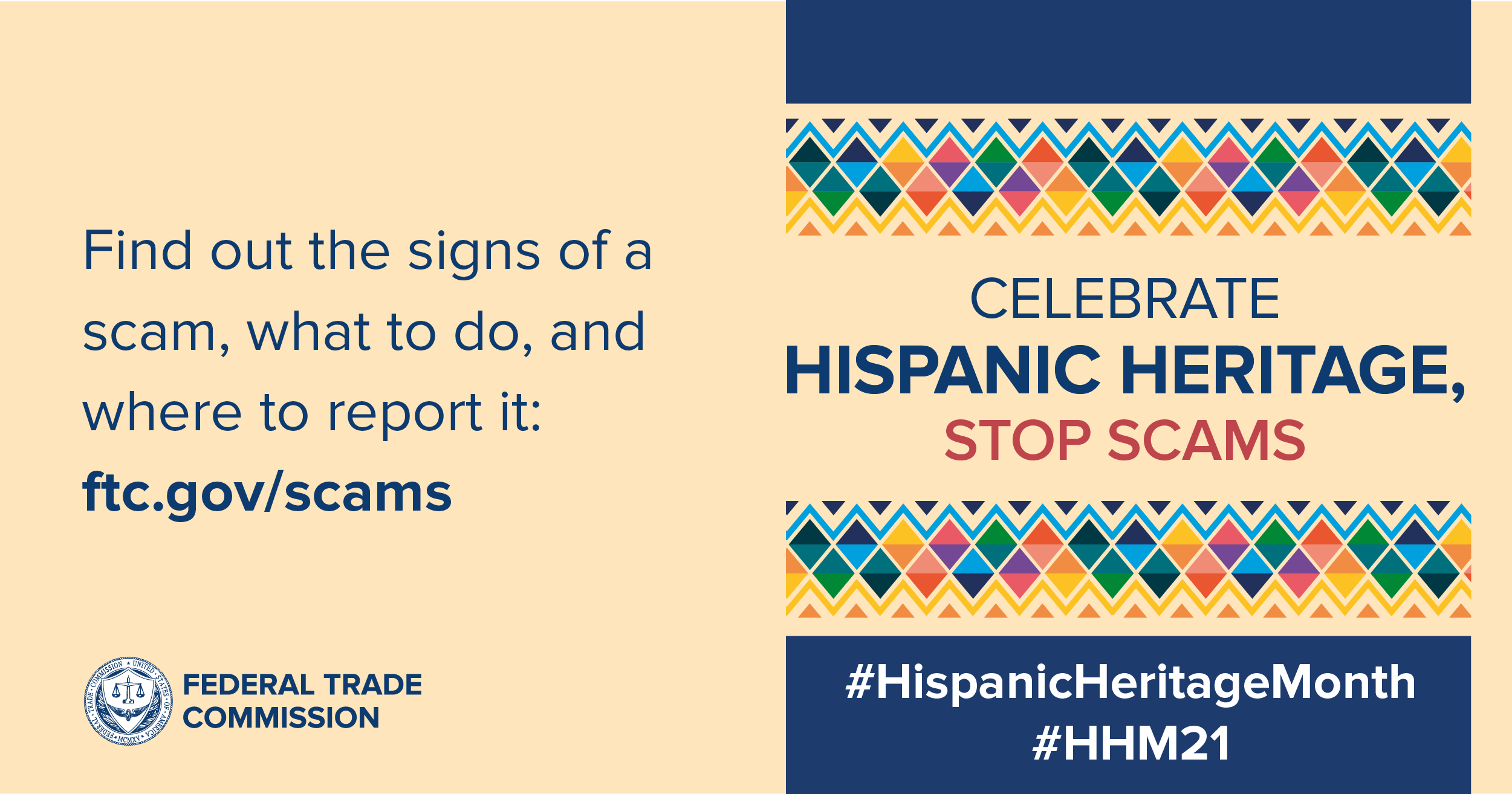 Each year, Hispanic Heritage Month celebrates the numerous contributions that Hispanic Americans and Latinos have made to our country. This year’s theme, Esperanza: A Celebration of Hispanic Heritage and Hope, encourages us to look forward to future contributions with optimism, hope, and a sense of community.
Each year, Hispanic Heritage Month celebrates the numerous contributions that Hispanic Americans and Latinos have made to our country. This year’s theme, Esperanza: A Celebration of Hispanic Heritage and Hope, encourages us to look forward to future contributions with optimism, hope, and a sense of community.
In honor of Hispanic Heritage Month, we’ll focus on ways to come together to help spot, stop, and report frauds that target Latino communities. Today kicks off our month-long series with advice that we hope you’ll share with others on how to recognize and avoid scams.
The FTC Consumer Fraud Survey showed that Latinos are more likely to experience fraud than non-Hispanic whites. Over the past year, that probably means dealing with a scammer who pretended to be someone they’re not, like a government official, a known business, or a family member or friend. The top scam reported to the FTC in 2020 was impersonator scams like these, with nearly 500,000 reports and a median loss of $850.
Check out ftc.gov/scams for the latest advice about How To Avoid a Scam, including how to recognize four common signs of a scam. You’ll also find tips to recognize and avoid impersonators who claim to be from the Social Security Administration, the FTC, the IRS, Medicare, or another government agency.
If you were scammed, it’s important to act as soon as you realize it. First, find out what to do if you paid a scammer, gave a scammer your personal information, or if a scammer has access to your computer or phone.
Then, take a few minutes to report the scam at ReportFraud.ftc.gov. After you report it, you’ll get advice on what you can do next to recover and protect yourself.
And sharing your experience with the FTC helps us alert communities about scams we’re hearing about. The more we hear about scams, the more we can do to spread the word.

In reply to Hello..can i have some advice by Freyna Taphil
This could be a scam. Sometimes scammers meet people online, and say they will send a package with jewelry, money, electronics, or other valuable items. Then, they say you must pay fees to accept the package.
Two scammers might work together. One scammer might pretend to be your friend, and another will pretend to work with Customs, or a government agency, or an airline. The scammers might send email, text messages, or call you and put pressure on you to pay for the package. You can choose to block them, ignore them, and stop talking. You could look up the real Philippines customs agency or airline to check out your story. Or, look online for stories about package delivery scams in the Philippines.
In reply to Someone scammed me w bitcoin. by Misom
Find out what to do if you paid a scammer, gave a scammer your personal information, or if a scammer has access to your computer or phone.
Then, please report the scam at ReportFraud.ftc.gov. After you report it, you’ll get advice on what you can do next to recover and protect yourself.